Women working in STEM-related disciplines from all over the world will travel to Antarctica on 22 November this year.
Some 100 women are taking part in the “Homeward Bound” leadership initiative, supporting women in science to improve their confidence and strategic capability.
It helps women to take up leadership roles globally. The programme culminates in the trip to Antarctica, part of the world that is experiencing some of the most severe consequences of climate change.
Dr Jessamyn Fairfield, a nanoscientist from the school of physics at NUI Galway, is just one of the women taking part.
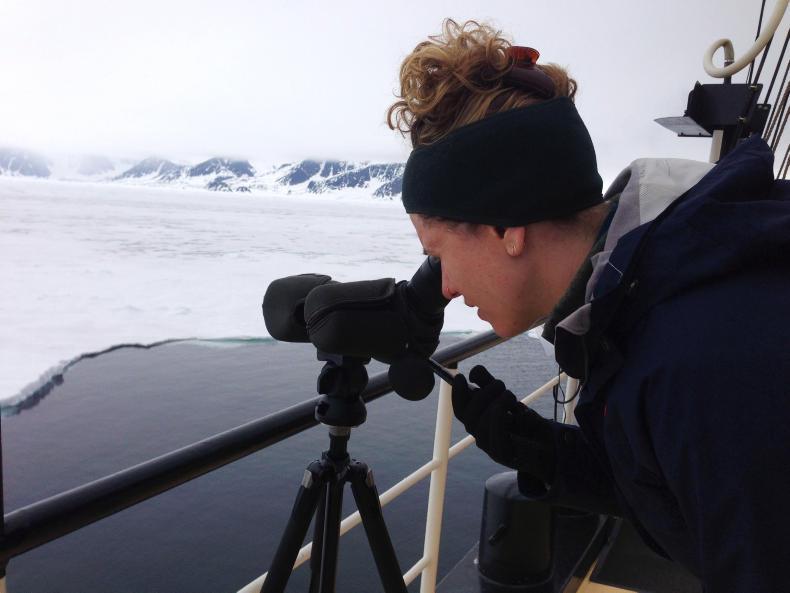
Dr Jessamyn Fairfield in Antartica.
“The idea of Homeward Bound is to bring together women who work in STEM initiatives to train them up in their own areas and become leaders in areas like climate change,” she told Irish Country Living.
“It focuses on personal strategy, clarity, visibility and confidence. It also looks at our individual values.
"One of the things I loved is that it isn’t a leadership programme trying to turn women into men, it’s a lot more nuanced, looking at our strengths.
"We are trying to create a collaboration of 1,000 women around the world.”
Fairfield is taking part in the fourth trip to Antarctica that Homeward Bound has led.
It was founded 10 years ago by Australian leadership consultant Fabian Dattner and Antarctic marine scientist Jess Melbourne-Thomas.
I won’t be doing anything specific to my research when I’m there. It will all be focused on leadership and strategy
Together,they got support from significant scientific bodies and women of influence, created a leadership team and teaching faculty to get the project off the ground.
In 2015, the project went viral and the first leadership programme and Antarctic voyage took place in 2016.
Each trip sees the scientists live on board a ship for three and a half weeks, to witness the effects of climate change on Antarctica for themselves.
“I won’t be doing anything specific to my research when I’m there. It will all be focused on leadership and strategy,” says Fairfield.
“It’s taking the work we’ve already done and considering priorities. These things tend to be very self-reflective. You are outside the churn of your day-to-day routine.
“I think something like this is tied into so many broader issues. If you went to somewhere less impacted by climate change then the trip wouldn’t be as impactful.”
Background
Fairfield is originally from the town of Los Alamos in New Mexico, USA, which is better known for inventing the atomic bomb.
She did her undergraduate degree at the University of California, Berkeley, majoring in physics and maths. But she also did some classes in music and creative writing.

“What brought me to nanoscience was a series of summer jobs. I worked in an observatory. Then I worked in a lab that made sensors out of silicon, I found it really fun to do.
"Then I went to do a PhD in nanoscience at the University of Pennsylvania. It’s a really exciting field; in that it’s interdisciplinary.”
Fairfield came to Ireland to do a five-year post doctorate in Trinity College Dublin. During that time she started the comedy, music and variety event called “Bright Club”.
Climate change has got increasingly polarised so using comedy is a good way to challenge that
“I think comedy is really important in terms of bringing science into the public eye.
"Most of the time scientists talk in facts, comedy is one of the few places where people are open to changing their minds.
"So far Bright Club has trained 150 academics in Ireland to use comedy; scientists and social scientists. It is funded by Science Foundation Ireland.
"Climate change has got increasingly polarised so using comedy is a good way to challenge that. It’s less formal. It takes out some of the defensiveness from the debate.”
Arctic 2017
Fairfield travelled to the Arctic in 2017, on board a ship that brought together scientists and artists who together looked at ways of highlighting the importance of the Arctic and how the changes there will affect humanity.
“It was a shock to get off a ship onto a beach and to see a plastic glove or netting.
"It made me want to say something and to act,” she said, adding that the experience was “awe inspiring” and that the large open spaces reminded her of home in New Mexico.
Antarctica
Having seen the Arctic, and now going to literally the polar opposite end of the world, Jessamyn Fairfield will certainly be well travelled.
She will be bringing her comedy skills to the women travelling with her; giving workshops on public engagement through comedy.
As a supervisor to students doing PhDs in nanoscience, she is now more conscious than ever that the growth of female leaders needs to be nurtured.
Explicit sexism is almost gone, but I think there is a good understanding that science is still sexist
“My students are frustrated that feminism hasn’t solved things yet. They have all volunteered in women in science initiatives and at Soapbox Science, a women in science event I co-organise,” says Fairfield.
“Explicit sexism is almost gone, but I think there is a good understanding that science is still sexist.
"Female scientists are harassed more, they aren’t invited to give as many talks, their expertise isn’t as valued and they don’t receive the same amount of Nobel Prizes.
“I thought that people would be judgemental that Homeward Bound is women only. Not a single person said to me that men should be allowed to do the programme too.”
The NUI Galway office for Equality and Diversity is funding part of Jessamyn’s trip to Antarctica.
In the meantime, she has another €6,000 to raise which she is doing through a crowdfunding page and a comedy variety show in Galway on 11 November at the Black Gate Cultural Centre from 7.30pm.
Tickets to the Galway comedy show are a perk for those who donate to Jessamyn’s leadership voyage with Homeward Bound on www.chuffed.org
What is a nuclear physicist’s favourite meal?
Fission Chips.
Where does bad light end up?
In a prism.
What’s the difference between an auto mechanic and a quantum mechanic?
The quantum mechanic can get the car inside the garage without opening the door.
Women working in STEM-related disciplines from all over the world will travel to Antarctica on 22 November this year.
Some 100 women are taking part in the “Homeward Bound” leadership initiative, supporting women in science to improve their confidence and strategic capability.
It helps women to take up leadership roles globally. The programme culminates in the trip to Antarctica, part of the world that is experiencing some of the most severe consequences of climate change.
Dr Jessamyn Fairfield, a nanoscientist from the school of physics at NUI Galway, is just one of the women taking part.

Dr Jessamyn Fairfield in Antartica.
“The idea of Homeward Bound is to bring together women who work in STEM initiatives to train them up in their own areas and become leaders in areas like climate change,” she told Irish Country Living.
“It focuses on personal strategy, clarity, visibility and confidence. It also looks at our individual values.
"One of the things I loved is that it isn’t a leadership programme trying to turn women into men, it’s a lot more nuanced, looking at our strengths.
"We are trying to create a collaboration of 1,000 women around the world.”
Fairfield is taking part in the fourth trip to Antarctica that Homeward Bound has led.
It was founded 10 years ago by Australian leadership consultant Fabian Dattner and Antarctic marine scientist Jess Melbourne-Thomas.
I won’t be doing anything specific to my research when I’m there. It will all be focused on leadership and strategy
Together,they got support from significant scientific bodies and women of influence, created a leadership team and teaching faculty to get the project off the ground.
In 2015, the project went viral and the first leadership programme and Antarctic voyage took place in 2016.
Each trip sees the scientists live on board a ship for three and a half weeks, to witness the effects of climate change on Antarctica for themselves.
“I won’t be doing anything specific to my research when I’m there. It will all be focused on leadership and strategy,” says Fairfield.
“It’s taking the work we’ve already done and considering priorities. These things tend to be very self-reflective. You are outside the churn of your day-to-day routine.
“I think something like this is tied into so many broader issues. If you went to somewhere less impacted by climate change then the trip wouldn’t be as impactful.”
Background
Fairfield is originally from the town of Los Alamos in New Mexico, USA, which is better known for inventing the atomic bomb.
She did her undergraduate degree at the University of California, Berkeley, majoring in physics and maths. But she also did some classes in music and creative writing.

“What brought me to nanoscience was a series of summer jobs. I worked in an observatory. Then I worked in a lab that made sensors out of silicon, I found it really fun to do.
"Then I went to do a PhD in nanoscience at the University of Pennsylvania. It’s a really exciting field; in that it’s interdisciplinary.”
Fairfield came to Ireland to do a five-year post doctorate in Trinity College Dublin. During that time she started the comedy, music and variety event called “Bright Club”.
Climate change has got increasingly polarised so using comedy is a good way to challenge that
“I think comedy is really important in terms of bringing science into the public eye.
"Most of the time scientists talk in facts, comedy is one of the few places where people are open to changing their minds.
"So far Bright Club has trained 150 academics in Ireland to use comedy; scientists and social scientists. It is funded by Science Foundation Ireland.
"Climate change has got increasingly polarised so using comedy is a good way to challenge that. It’s less formal. It takes out some of the defensiveness from the debate.”
Arctic 2017
Fairfield travelled to the Arctic in 2017, on board a ship that brought together scientists and artists who together looked at ways of highlighting the importance of the Arctic and how the changes there will affect humanity.
“It was a shock to get off a ship onto a beach and to see a plastic glove or netting.
"It made me want to say something and to act,” she said, adding that the experience was “awe inspiring” and that the large open spaces reminded her of home in New Mexico.
Antarctica
Having seen the Arctic, and now going to literally the polar opposite end of the world, Jessamyn Fairfield will certainly be well travelled.
She will be bringing her comedy skills to the women travelling with her; giving workshops on public engagement through comedy.
As a supervisor to students doing PhDs in nanoscience, she is now more conscious than ever that the growth of female leaders needs to be nurtured.
Explicit sexism is almost gone, but I think there is a good understanding that science is still sexist
“My students are frustrated that feminism hasn’t solved things yet. They have all volunteered in women in science initiatives and at Soapbox Science, a women in science event I co-organise,” says Fairfield.
“Explicit sexism is almost gone, but I think there is a good understanding that science is still sexist.
"Female scientists are harassed more, they aren’t invited to give as many talks, their expertise isn’t as valued and they don’t receive the same amount of Nobel Prizes.
“I thought that people would be judgemental that Homeward Bound is women only. Not a single person said to me that men should be allowed to do the programme too.”
The NUI Galway office for Equality and Diversity is funding part of Jessamyn’s trip to Antarctica.
In the meantime, she has another €6,000 to raise which she is doing through a crowdfunding page and a comedy variety show in Galway on 11 November at the Black Gate Cultural Centre from 7.30pm.
Tickets to the Galway comedy show are a perk for those who donate to Jessamyn’s leadership voyage with Homeward Bound on www.chuffed.org
What is a nuclear physicist’s favourite meal?
Fission Chips.
Where does bad light end up?
In a prism.
What’s the difference between an auto mechanic and a quantum mechanic?
The quantum mechanic can get the car inside the garage without opening the door.






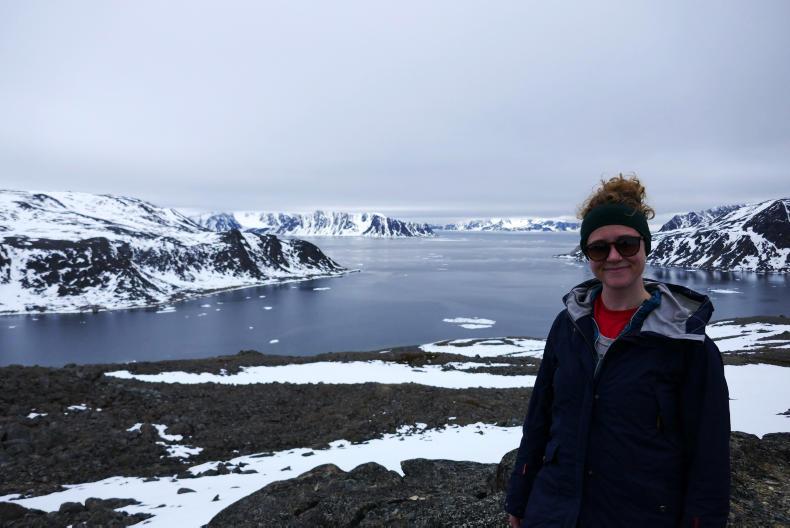
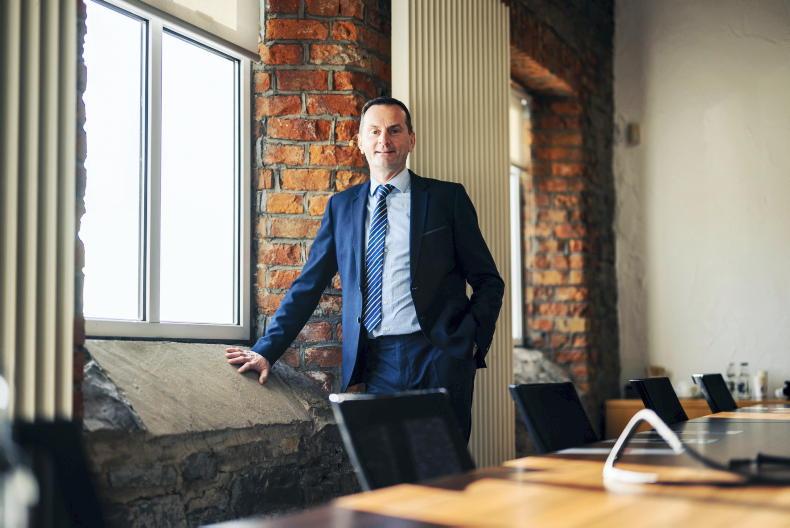
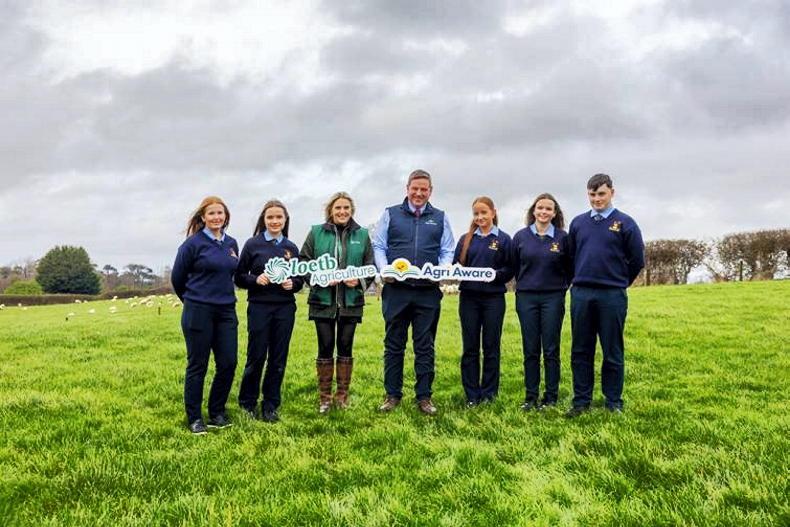
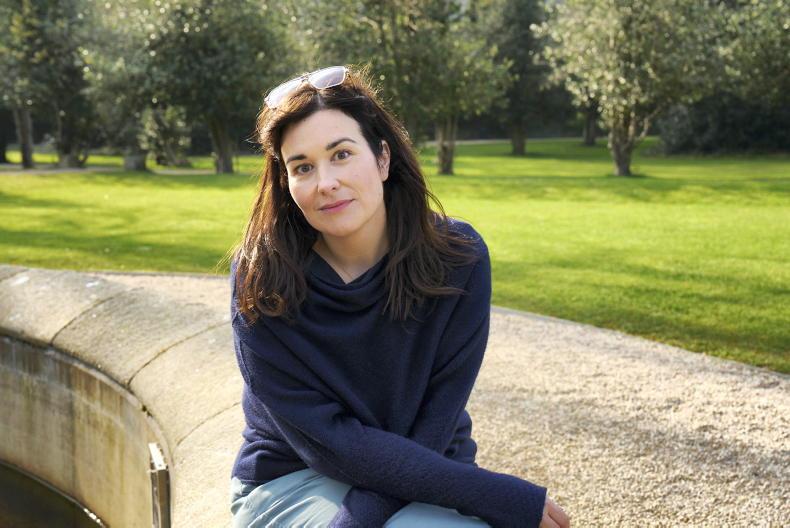
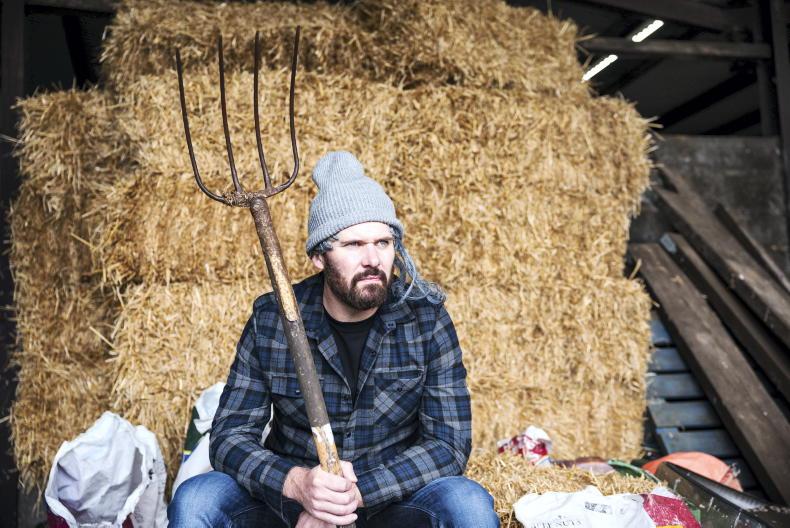
SHARING OPTIONS